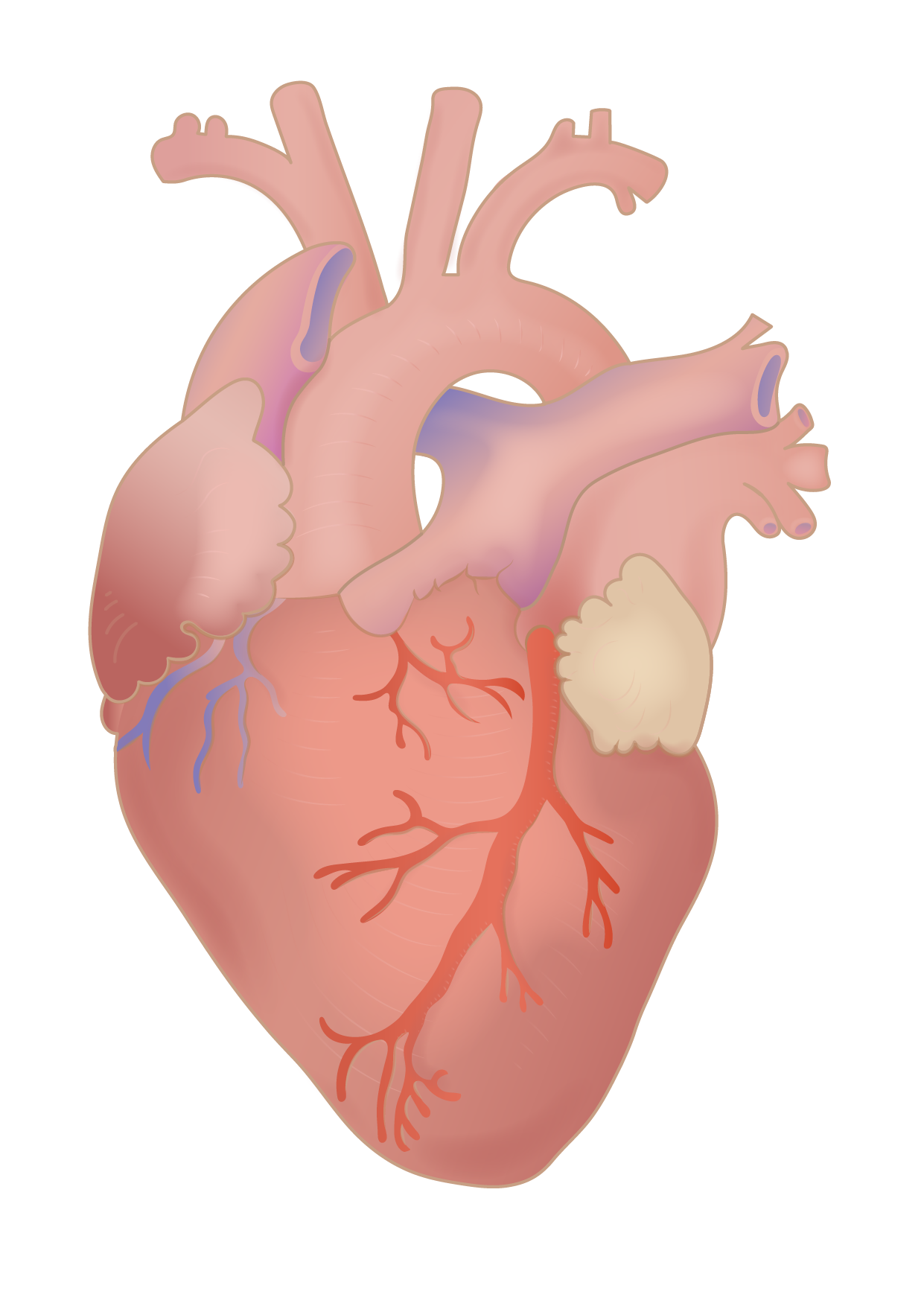
Embarking on a journey to improve one’s health and manage weight is a deeply personal and often challenging endeavor. The path is frequently fraught with well-intentioned efforts that, unfortunately, lead to frustration and confusion rather than sustainable progress. Many individuals find themselves caught in a cycle of attempting various strategies, only to discover that some deeply ingrained habits or popular ‘tricks’ are, in fact, working against their ultimate goals. It’s a landscape where the desire for quick fixes often overshadows the wisdom of gradual, evidence-backed change. This comprehensive guide, informed by insights from seasoned experts in biophysics, nutrition, and fitness, aims to illuminate these common pitfalls, helping you identify and cease the most detrimental practices that hinder genuine progress.
Indeed, losing weight, as fitness coach Dan Go aptly puts it, “can be one of the most frustrating things that you do in your entire life.” He emphasizes that a significant portion of this struggle stems from a lack of awareness regarding “the hidden missteps that cause them to keep the weight on in the first place.” These aren’t just minor errors; they are often the ‘worst’ approaches—those that are ‘most bad’ or represent the lowest quality of strategy, actively detracting from success. Just as the word ‘worst’ signifies the most extreme degree of something bad, these diet tricks represent the most counterproductive habits that experts wish you would abandon. Understanding why these practices are so detrimental is the first step toward embracing a more effective and empowering approach to health and wellness.
Natacha Oceane, a biophysicist from University College London, a nutrition expert, and an IronMan runner, shares a similar sentiment, highlighting the widespread frustration she observes. She notes, “People spend so much time feeling frustrated, confused,” and describes it as “just so exhausting to watch.” This article will delve into some of the ‘worst’ diet tricks that hinder progress, offering expert-backed guidance to help you navigate your health journey with greater clarity and success. We will break down these pervasive issues, offering a clear, actionable understanding of why they are considered the most unfavorable approaches and how to replace them with more effective, sustainable habits for improved health and well-being.

1. **Setting Unrealistic Goals**One of the most insidious and widely adopted ‘worst’ diet tricks that experts consistently caution against is the tendency to set unrealistic goals, often manifest in extreme training programs or overly restrictive diets. Natacha Oceane, with her deep understanding of human physiology and practical experience as an IronMan runner, expresses profound concern about these intense regimens. She observes the cycle of despair they create, noting, “People spend so much time feeling frustrated, confused,” and laments that “It’s just so exhausting to watch.” This frustration is a direct consequence of expectations that are out of sync with what the body can realistically achieve or sustain over time, leading to burnout and eventual abandonment of health goals.
The allure of rapid transformation often drives individuals towards these extreme programs, promising dramatic results in impossibly short timeframes. However, this pursuit of the ‘quick fix’ frequently backfires, leading to disappointment and a sense of personal failure when the initial, often unsustainable, momentum inevitably wanes. From a proactive health perspective, such an approach is considered a ‘worst’ trick because it undermines the very foundation of long-term wellness: consistency and enjoyment. When a program is so demanding that it becomes a source of constant stress and deprivation, adherence becomes almost impossible, setting the stage for a rebound that can leave individuals in a worse state than when they started.
Experts advocate for a shift away from this all-or-nothing mentality towards a more balanced and compassionate approach. Instead of chasing fleeting, extreme outcomes, the focus should be on establishing small, incremental improvements that can be maintained indefinitely. This involves setting goals that are challenging yet achievable, ensuring that the journey itself is not only effective but also enjoyable. By doing so, individuals can build healthy habits gradually, making them an integrated part of their lifestyle rather than a temporary, punishing endeavor. The ‘worst’ trick here is not just the extremity of the goal, but the psychological toll it takes, eroding motivation and fostering a negative relationship with health and fitness.
The pressure to conform to societal ideals of rapid weight loss or extreme fitness levels often fuels these unrealistic expectations. However, true health and sustainable weight management are about making peace with the process, celebrating small victories, and understanding that progress is rarely linear. As a biophysicist, Oceane’s concern stems from the scientific reality that extreme measures often lead to metabolic adaptations that can make subsequent weight loss even more challenging, moving the situation “from bad to worse.” Therefore, avoiding this ‘worst’ trick means embracing patience and prioritizing bodily well-being over arbitrary, aggressive targets, ultimately fostering a more positive and enduring engagement with one’s health journey.
Adopting a mindset of gradual, sustainable change is paramount to long-term success. It means moving away from the idea that harder is always better and instead focusing on smarter, more integrated strategies. This proactive shift not only reduces the risk of injury and mental fatigue but also builds resilience and a positive self-image, irrespective of daily fluctuations on the scale. By rejecting the ‘worst’ trick of unrealistic goal-setting, individuals pave the way for a more enjoyable and ultimately more effective journey towards their health and wellness aspirations, recognizing that true progress is a marathon, not a sprint, and is measured by consistent effort rather than dramatic, fleeting results.
Read more about: Beyond the Paycheck: 13 Toxic Corporate Cultures That Fuel Mass Employee Walkouts

2. **Obsessing Over the Scale**Another significant ‘worst’ diet trick that experts wish individuals would abandon is the obsessive fixation on the number displayed on the bathroom scale. This ubiquitous practice, while seemingly intuitive as a measure of progress, is deeply flawed and often leads to unnecessary anxiety and discouragement. Natacha Oceane explicitly debunks the myth of the scale as a holistic indicator of health and appearance, stating unequivocally, “The scale does not measure how you look or how you feel.” This simple yet profound statement highlights a fundamental misunderstanding that many people harbor about what body weight truly represents.
The number on the scale is merely a snapshot of your body’s gravitational pull, reflecting a multitude of factors far beyond just fat loss. It encompasses muscle mass, bone density, water retention, glycogen stores, and even the contents of your digestive system. These elements can fluctuate significantly day-to-day, or even hour-to-hour, due to hydration levels, sodium intake, exercise, and hormonal changes. Consequently, a slight increase on the scale might not indicate fat gain but merely temporary water retention, yet for someone fixated on the number, it can feel like a devastating setback, undermining morale and commitment to healthier habits.
This obsessive behavior is particularly detrimental because it shifts focus away from more meaningful indicators of health and progress. Instead of celebrating increased energy, improved strength, better sleep, or clothes fitting more comfortably, individuals become enslaved by a number that offers an incomplete and often misleading picture. Such a narrow focus can lead to unhealthy behaviors, such as extreme calorie restriction or excessive exercise, in an attempt to manipulate the scale, rather than prioritizing true nutritional balance and sustainable physical activity. This makes it a ‘worst’ trick because it fosters an unhealthy relationship with one’s body and the process of self-improvement.
The ‘Prevention’ style emphasizes proactive health management, and obsessing over the scale is counterproductive to this principle. True proactive health involves a broader perspective, evaluating progress through a variety of metrics that reflect overall well-being. This includes assessing body composition changes (e.g., how clothes fit), improvements in athletic performance, enhanced mood, better digestion, and increased vitality. Relying solely on the scale for validation can obscure these genuine advancements, creating a disheartening experience where progress is consistently overlooked, ultimately leading to a sense of failure even when significant positive changes are occurring internally and externally.
Therefore, moving beyond scale obsession is a critical step towards adopting a more holistic and psychologically healthier approach to weight management. It empowers individuals to tune into their bodies, observe qualitative changes, and appreciate the multifaceted nature of health. By understanding that the scale is a limited tool and embracing a wider array of progress indicators, people can liberate themselves from the tyranny of a single number. This fosters a more positive and sustainable relationship with their bodies and their health journey, transforming a ‘worst’ trick into an opportunity for genuine, self-aware improvement that truly aligns with how they look and, more importantly, how they feel.
Read more about: Truly Why Did They Disappear? The Resurgence of 14 Iconic Body Styles That Left the Production Line

3. **Doing Daily Weigh-Ins**Directly related to the trap of obsessing over the scale, yet distinct enough to warrant its own critical examination as a ‘worst’ diet trick, is the habit of performing daily weigh-ins. This practice, often adopted with the best intentions of monitoring progress closely, is actually counterproductive and frequently leads to profound discouragement, as Master Pilates trainer Risa Sheppard eloquently states: “Weighing oneself every single day is another mistake. It can be discouraging. Try to weigh yourself less and pay more attention to how your clothes are fitting.” Her advice underscores a fundamental truth about human physiology and psychology in the context of weight management.
The human body is not a static entity; its weight fluctuates constantly due to numerous factors, many of which have nothing to do with fat loss or gain. For instance, consuming a meal high in sodium can lead to significant temporary water retention, showing an uptick on the scale the next morning. Similarly, intense workouts can cause microscopic muscle tears and inflammation, prompting the body to retain water for repair, again reflected as a higher number. These normal physiological responses, when viewed through the lens of daily weigh-ins, are often misinterpreted as failures, creating a frustrating and demoralizing experience that actively hinders motivation rather than supporting it.
This continuous exposure to fluctuating numbers can create a roller coaster of emotions, with daily highs and lows dictated by what the scale reveals. Such emotional volatility is exhausting and unsustainable for long-term adherence to a healthy lifestyle. It transforms a process that should be about self-care and empowerment into a daily judgment, where one’s self-worth might inadvertently become tied to a mere numeral. This makes daily weigh-ins a ‘worst’ trick because they systematically erode confidence and joy in the journey, turning a health pursuit into a source of constant stress and self-criticism, which ultimately can lead to abandoning efforts altogether.
In line with the Prevention writing style, the recommendation to “weigh yourself less and pay more attention to how your clothes are fitting” offers practical, actionable advice that promotes a more balanced perspective. How clothes fit is a far more reliable indicator of changes in body composition, particularly fat loss and muscle gain, than a fluctuating scale number. This qualitative assessment provides a more encouraging and accurate reflection of progress, reinforcing positive behaviors and fostering a healthier body image. It shifts the focus from a number to tangible, positive changes in comfort and appearance, which are more motivating and less prone to misleading daily variations.
Therefore, moving away from daily weigh-ins is not just about avoiding discouragement; it’s about adopting a smarter, more sustainable method of tracking progress that aligns with actual physiological changes and supports mental well-being. By choosing to weigh in less frequently—perhaps once a week or even bi-weekly—and prioritizing how one feels and how clothes fit, individuals can gain a more accurate and encouraging view of their health journey. This ‘worst’ trick, when abandoned, opens the door to a more patient, positive, and ultimately more successful approach to achieving and maintaining desired health outcomes, fostering resilience and a healthier relationship with one’s body and the process of change.

4. **Unsustainable Workout Routines**Beyond the realm of dietary restrictions and scale fixation, another significant ‘worst’ diet trick that derails progress for many is the adoption of unsustainable workout routines. Often fueled by the same desire for rapid transformation that drives unrealistic goal-setting, these intense regimens promise quick results but inevitably lead to burnout and abandonment. Natacha Oceane, with her expertise as a biophysicist and IronMan runner, points directly to this issue, lamenting the common approach of overtraining: “That works out to either 9.2 sessions a week or 11.6 sessions a week. Guys, did we not agree on sustainability?” Her rhetorical question perfectly encapsulates the core problem: a fundamental disregard for what the body and mind can realistically maintain over the long haul.
The allure of extreme exercise programs often stems from a misconception that more is always better when it comes to physical activity. Individuals might dive into grueling daily sessions or double workouts, believing that sheer volume will accelerate fat loss. However, the human body requires adequate rest and recovery to adapt and grow stronger. Without this crucial downtime, such routines don’t just become physically exhausting; they become counterproductive, leading to increased cortisol levels, risk of injury, and a profound sense of fatigue that diminishes motivation. This makes them a ‘worst’ trick because they actively prevent the consistent engagement necessary for true, lasting health improvements.
Prevention-style advice emphasizes the importance of practical, actionable strategies. Instead of chasing fleeting, high-intensity phases, the focus should shift to integrating enjoyable and manageable physical activity into daily life. This means choosing workouts that align with one’s fitness level, schedule, and personal preferences, ensuring that exercise becomes a source of empowerment and energy, not a dreaded chore. This approach fosters a proactive mindset towards health, helping to avoid the pervasive sense of failure and self-doubt that arises from trying and failing to maintain an overly demanding exercise schedule. True progress is built on incremental, consistent efforts that honor the body’s need for balance and rest.
Ultimately, embracing sustainability in workout routines is about cultivating a healthier, more enduring relationship with exercise. It moves beyond the idea of exercise as a means to an end (rapid weight loss) and redefines it as an integral component of overall well-being. By prioritizing routines that can be maintained indefinitely, individuals not only achieve better physical outcomes but also foster mental resilience and a positive body image. This proactive shift is essential for transforming health aspirations from a cycle of frustration into a fulfilling and lifelong journey of vitality.
Read more about: Beyond the Treadmill: 13 Major Cardio Routines That May Be Holding Back Your Fat Loss Goals

5. **Avoiding Strength Training**Another common ‘worst’ diet trick, particularly prevalent among those approaching their 40s, is the tendency to avoid strength training in favor of exclusively cardio-based workouts. This approach, rooted in outdated fitness paradigms, overlooks the profound and unique benefits that building muscle offers for metabolism, body composition, and long-term health. Adita Yrizarry-Lang, a respected diet and fitness expert, aptly highlights this historical misconception, sharing her early experiences: “When I first started in fitness, this was the prescription…do a lot of cardio. The reality is that you burn more c”. Her statement implicitly points to the enhanced caloric expenditure that strength training facilitates, not just during the workout itself, but continuously throughout the day.
This ‘worst’ trick often stems from a fear of “bulking up,” especially among women, or a belief that cardio alone is sufficient for weight loss. However, this is a significant myth that Prevention-style reporting consistently debunks. Muscle tissue is metabolically active, meaning it burns more calories at rest than fat tissue. Therefore, increasing muscle mass through strength training effectively revs up one’s basal metabolic rate, turning the body into a more efficient fat-burning machine 24/7. This makes it a crucial, proactive strategy for sustainable weight management, far more effective than cardio alone in reshaping body composition and preventing age-related metabolic slowdown.
The practical benefits of incorporating strength training extend far beyond calorie burn. Regular resistance exercises improve bone density, which is particularly vital as individuals age, helping to prevent osteoporosis. It also enhances functional strength, making everyday tasks easier and reducing the risk of injuries. For individuals trying to lose weight, building muscle helps preserve lean mass during a caloric deficit, ensuring that the weight lost is primarily fat and not precious muscle. This leads to a more toned physique and a healthier, stronger body, contributing to both how one looks and, importantly, how one feels.
Experts consistently advocate for a balanced fitness regimen that includes both cardiovascular exercise and strength training. Cardio is excellent for heart health and immediate calorie expenditure, but strength training provides the metabolic boost and structural integrity that are indispensable for long-term health and weight maintenance. It empowers individuals to build a resilient body capable of meeting life’s demands with greater ease and energy. Rejecting the ‘worst’ trick of neglecting strength training is about embracing a comprehensive approach to fitness that recognizes the synergistic power of different exercise modalities and fosters a positive relationship with one’s body, transforming exercise into an empowering act of self-care.
Read more about: Beyond Protein Shakes: Your Definitive Guide to Halting Muscle Loss After 50 with Essential Bodyweight Exercises and Smart Strategies

6. **Seeking Quick Fixes**Perhaps one of the most pervasive and insidious ‘worst’ diet tricks that experts wish individuals would abandon is the endless pursuit of quick fixes. This deep-seated desire for instant results often overshadows the wisdom of gradual, evidence-backed change, trapping countless individuals in a frustrating cycle of hope and disappointment. The initial paragraphs of this article touched upon this, highlighting how the “desire for quick fixes often overshadows the wisdom of gradual, evidence-backed change.” In an age of rapid information and instant gratification, the appeal of a diet pill, a detox tea, or a fad diet promising dramatic weight loss in days or weeks is undeniably strong, yet it consistently proves to be a counterproductive path.
The detrimental nature of quick fixes lies in their inherent unsustainability and their tendency to address symptoms rather than underlying causes. These methods often involve extreme caloric restriction, elimination of entire food groups, or reliance on unregulated supplements, none of which are designed for long-term adherence. While they might produce rapid initial weight loss, this is frequently due to water loss or muscle catabolism, not sustainable fat reduction. The body, perceiving a state of deprivation, often responds by slowing metabolism and increasing hunger, leading to a rebound effect where individuals regain the lost weight, often with additional pounds, once the restrictive phase ends. This makes “quick fixes” a ‘worst’ trick because they actively sabotage the body’s natural regulatory mechanisms and foster an unhealthy relationship with food and fitness.
Prevention’s mission to debunk myths and provide credible information is particularly relevant here. The myth of the “magic bullet” for weight loss is one of the most damaging. True and lasting weight management is a complex interplay of nutrition, physical activity, sleep, stress management, and mental well-being. Quick fixes bypass this complexity, offering simplistic solutions that fail to equip individuals with the knowledge and habits necessary for genuine, enduring change. They distract from the real work of understanding one’s body, developing mindful eating practices, and building consistent, enjoyable exercise routines, which are the true building blocks of proactive health.
Moreover, the psychological toll of constantly seeking and failing with quick fixes can be immense. It cultivates a sense of despair and self-blame, reinforcing the belief that weight loss is an impossible or uniquely difficult endeavor. By abandoning this ‘worst’ trick, individuals can liberate themselves from this exhausting cycle. They can instead embrace an encouraging, empowering approach that celebrates gradual progress and recognizes that true health is a journey of continuous improvement, not a destination reached by a shortcut. This shift towards a holistic, informed, and patient perspective is crucial for building a foundation of wellness that stands the test of time.
Read more about: Beyond the Treadmill: 13 Major Cardio Routines That May Be Holding Back Your Fat Loss Goals
In navigating the often-confusing landscape of health and wellness, it becomes abundantly clear that the most effective path forward is one paved with patience, knowledge, and self-compassion. The ‘worst’ diet tricks we’ve explored, from the siren song of quick fixes to the neglect of strength training and the tyranny of the daily weigh-in, all share a common thread: they divert us from sustainable, evidence-based practices. By empowering ourselves with expert-backed insights and rejecting these counterproductive habits, we open the door to genuine transformation. Let’s step away from the frustrating cycles of deprivation and disappointment, and instead, embrace a proactive, balanced lifestyle that truly nurtures our bodies and minds, fostering lasting vitality and well-being. Your journey to a healthier, happier you isn’t about perfection; it’s about persistent, informed progress.



